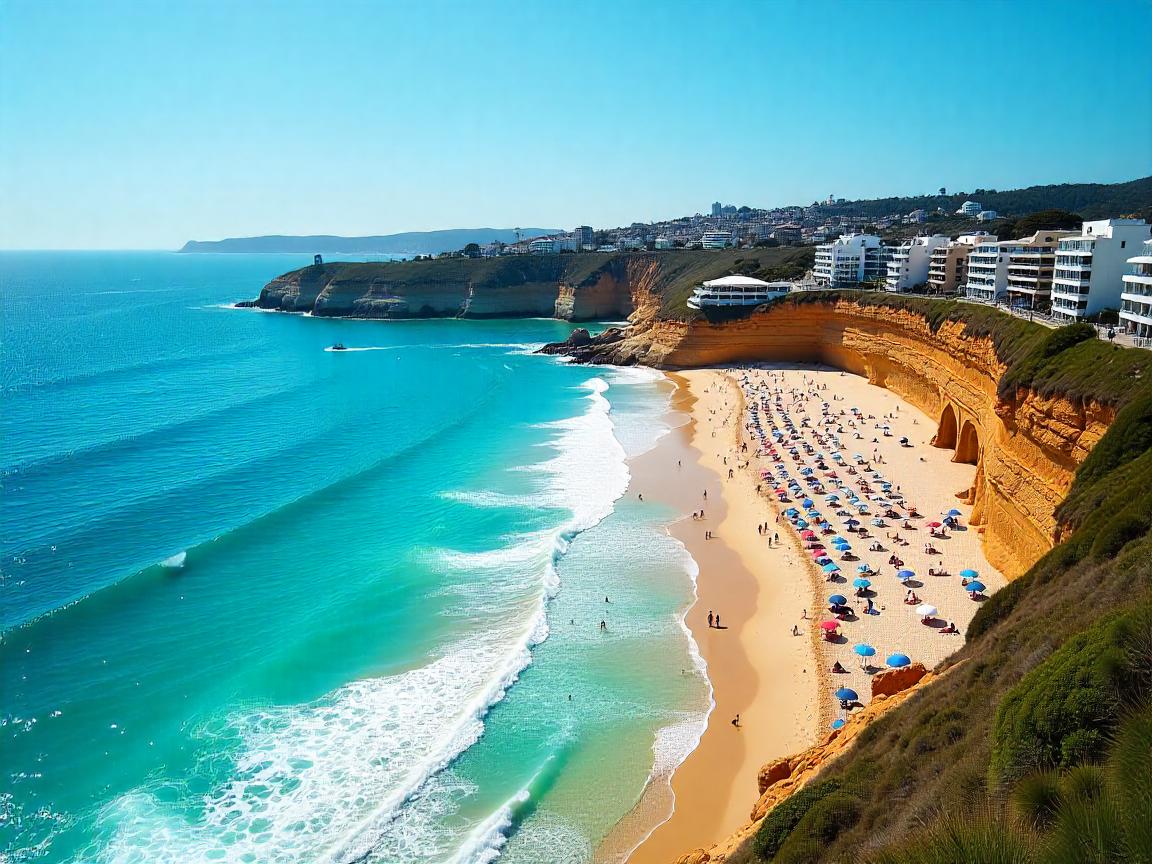Home
»
Spain Travel News
»
Spain Struggles Under Tourism Surge as Angry Protesters Fight to Protect Their Fragile Communities from Invasion of Holidaymakers
Monday, June 16, 2025
Spain is witnessing a rising wave of anger as locals fight back against the overwhelming flood of mass tourism that is transforming their once-peaceful communities into overcrowded hotspots. Frustrated residents in popular destinations like Majorca, Ibiza, Barcelona, and the Canary Islands are protesting against soaring housing costs, overcrowded streets, and the relentless takeover of residential neighborhoods by short-term holiday rentals. With millions of tourists arriving every year, many locals fear their island paradise and cultural identity are being pushed to the brink, demanding urgent action to restore balance and protect their way of life.
Mass Tourism Protests Escalate Across Spain’s Popular Holiday Hotspots
Spain’s most beloved tourist destinations are facing rising tensions as locals continue to voice their frustration over the growing impact of mass tourism on their daily lives. This weekend, thousands of demonstrators filled the streets of Majorca and Ibiza, two of the Balearic Islands’ most visited locations, demanding immediate government intervention to address the pressures caused by an overwhelming influx of tourists.
What began as an ordinary weekend for holidaymakers quickly turned into a scene of passionate protest. Visitors who had flocked to the islands for sunshine and relaxation found themselves caught in the middle of widespread public demonstrations. Carrying banners that read “go home,” protestors expressed their anger towards the sheer volume of visitors, particularly those arriving on cruise ships, private jets, and renting out short-term holiday properties.
The demonstrations were aimed squarely at what locals describe as unsustainable tourism growth, which they claim has led to soaring housing prices and the deterioration of their communities. The booming short-term rental market, driven by platforms such as Airbnb, has converted significant portions of residential neighborhoods into tourist accommodations, forcing many residents out of affordable housing options.
During one of the largest protests in Palma, Majorca’s capital, organizers estimated that around thirty thousand people marched through the streets, filling public squares and major thoroughfares with chanting, drumming, and waving placards. The heavy turnout forced police to intervene on several occasions, especially when tensions flared near bars and cafes where tourists sat trying to enjoy their afternoon. Authorities were seen forming protective lines around holidaymakers as protestors jeered and voiced their disapproval.
While some demonstrators directed their anger towards foreign visitors—often referred to locally as “guiris,” a colloquial term used for foreigners—the broader focus remained on the economic pressures that unchecked tourism is placing on local residents. Many protestors argued that the explosion of short-term rentals has pushed rent and property prices beyond the reach of ordinary citizens, leading to an acute housing crisis. According to recent estimates, in certain areas of the Balearics, up to one-third of available homes are now being used as holiday rentals.
The situation has become particularly volatile in the Balearic Islands, which welcomed more than fifteen million international visitors last year, despite having a permanent population of only around one point two million. This massive disparity, locals argue, is pushing essential services to the brink, crowding schools, healthcare facilities, and transportation systems originally designed for much smaller communities.
However, the backlash is not limited to Majorca and Ibiza. Organizers have announced that more protests are scheduled for the summer season across other parts of Spain that are heavily dependent on tourism. Large demonstrations are planned for Barcelona, where residents have long struggled with overtourism, and in the Canary Islands, another top destination for sun-seeking travelers.
In previous years, protests have resulted in significant disruptions for vacationers. Some incidents have seen activists confronting beachgoers directly, engaging in heated verbal exchanges and blocking popular tourist areas. These demonstrations are often seen as part of a growing movement throughout Europe, where many cities are grappling with the consequences of high-volume tourism.
Local activist groups argue that without immediate policy changes, the cultural identity and environmental integrity of these regions could be permanently damaged. They are calling on the Spanish government and regional authorities to implement stricter regulations on short-term holiday rentals, impose limits on cruise ship arrivals, and develop more sustainable tourism models that prioritize residents’ needs.
Despite these calls for reform, tourism remains a vital part of the Spanish economy, contributing significantly to employment and local revenue. Balancing the interests of the tourism industry with the well-being of local communities has proven to be a complex and highly charged issue for policymakers.
Spain’s most popular tourist destinations are erupting in protests as furious locals demand action against mass tourism, which they say is driving up housing costs, overcrowding their communities, and threatening their island way of life.
As the summer season gets into full swing, tensions are likely to remain high. With millions of visitors still expected to pour into Spain’s picturesque coastlines, bustling cities, and sun-kissed islands, the protests serve as a stark reminder of the delicate balance between welcoming tourists and preserving local quality of life. Whether authorities can find a lasting solution to Spain’s tourism dilemma remains uncertain, but one thing is clear: the voices of those affected are growing louder with each passing season.
